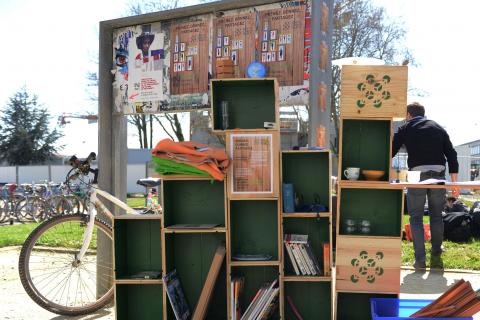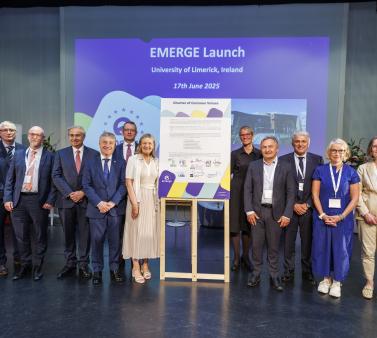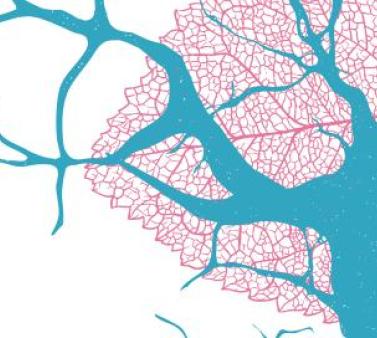Our Guiding Principles and Approach
As part of our commitment to present and future generations, our sustainable development policies aim to balance economic development, social cohesion and ecological imperatives through a set of humanist values, ethical considerations (parity, equality, equity etc.), and democratic and participatory decision-making processes. In order to achieve common sustainable development and social responsibility objectives, we must radically change the way we think, live and work together.
With a student body of over 20,000, our university has an important role to play in contributing to the life of the students and community of today and tomorrow which entails reducing our ecological footprint and improving work and study conditions, quality of life and well-being on and off our campuses.
Rennes 2's policy includes implementing practices essential to reducing our impact on the environment and improving the quality of life on our campuses, strengthening social cohesion and identity, underpinning our teaching and research programs, as well as supporting our national and international appeal.
Strategic Objectives
In line with the post-2015 education agenda, the commitment of higher education and research institutions to meet the challenges of the twenty-first century through a global education policy (information, training, awareness-raising and participation) involving all citizens in favor of sustainable development and social responsibility, is an essential condition for anticipating and preparing for the future.
To achieve this, Rennes 2 has set the following strategic objectives:
- Integrate sustainable development principles into the development and implementation of its various missions, in particular to its teaching, research, outreach and community service activities, as part of a broader participatory governance;
- Ensure sound, responsible and sustainable management of the university in accordance with its humanist values and the economic, ecological, social and cultural components of sustainable development;
- Foster the development of the university community through the creation of a fair, accessible, equitable and inclusive living, learning and working environment; promote innovations and experiments aimed at preserving natural environments on our campuses and improving their landscape quality and biodiversity;
- Promote education and awareness of sustainable development principles and practices and provide support for student and civic initiatives both within and outside the university;
- Enrich and disseminate natural, cultural, tangible and intangible heritage to accelerate ecological and social transitions;
- Communicate strategic orientations, monitor progress and report on the results of the sustainable development and social responsibility policy by disseminating a report to the university community and external partners, involving them in achieving the sustainable development and social responsibility objectives to which the institution is committed.
Our Sustainability Plan
Following a collaborative process involving staff and student volunteers, an ambitious five-year plan for sustainable development and social responsibility was established. This plan includes 118 actions with a strategic, pedagogical or operational focus, combining sociability, participation, equity and responsibility.
Its goal is to better ensure a university life that is more harmonious and sustainable with community actors and the city and region, all the while reducing the ecological footprint and improving work and study conditions, and well-being on our three campuses (La Harpe, Mazier, and Villejean).
Broadened participatory governance
Committing to the national labeling of this plan by 2020 must be a driving force within our institution to uphold all the actions undertaken over the past few years. The objective of the "Sustainable Development" mission is to ensure that this approach permeates all campus operations, that it is systematically taken into account by all stakeholders (staff, students, partners) and becomes a reflex in our daily actions and decisions.
Dedicated tools
In order to ensure political support and an effective implementation of our sustainability strategy, two participatory tools have been created: the Commission for the Orientation and Management of Sustainable Development (COPDD), and a network of sustainable development ambassadors. As the driving forces behind our ambition, these bodies bring together students and staff around a proactive dynamic, with a view to stimulating reflection and enabling initiatives to be stepped up.





